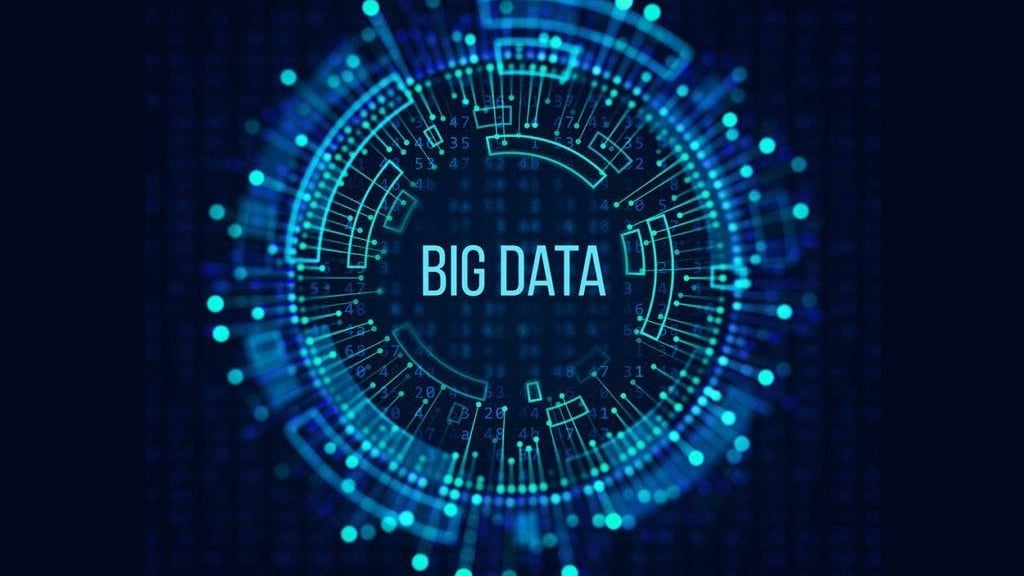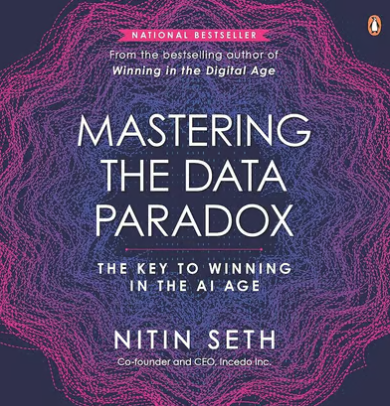Data Powers Everything We Do
In Chapter 2 of Mastering the Data Paradox, we explore how data has become the lifeblood of the digital world. From the GPS routes that remember your favorite spots to the streaming shows you binge, data is shaping daily life like never before.
DATA & AIRECOMMENDATION SYSTEMSMACHINE LEARNING
Jake Byford
11/25/20243 min read


Data is everywhere.
And I mean everywhere.
As the Chairman of LinkedIn, Jeff Weiner puts it, “Data really powers everything we do…”
Chapter 2 of Mastering the Data Paradox explains how every industry has started to adapt, finding new value and transforming in ways that were once unimaginable.
Take a minute and think about your day so far.
The GPS that mapped your commute? Data-driven.
Your streaming app nudging you to watch the next episode? Data again.
Your fitness tracker counting your steps? That’s more data.
It’s all around us because data has become the fuel behind everything we do.
But most of us don’t stop to think about just how deeply it’s embedded in our lives.
Big Data is the fuel behind it all.
The bigger data gets, the smarter our technology becomes.
Big Data is why your Netflix knows what you want to watch next or how Amazon delivers packages in record time.
It’s a massive feedback loop:
We create data because we use tech
The data makes the tech better
We use tech even more
This cycle is accelerating because digital adoption has skyrocketed over the past few years.
Why?
Because the pandemic pushed us into a new digital era.
When COVID-19 hit, digital went from “nice to have” to “absolutely essential.”
We had no choice but to adapt.
Work? Online.
School? Online.
Even birthday parties? You guessed it—online.
Even my college graduation was online!
The pandemic changed everything because it forced us to rethink how we live and work.
And because companies had to adapt overnight, digital tools became the foundation for survival.
But this wasn’t just a temporary shift—it’s now our new normal.
You may ask but how does data shape our everyday lives?
Well for starters, your GPS always knows where to go.
Think about how you get from Point A to Point B.
Whether it’s a quick trip to the store or a cross-country road trip, GPS guides you because it collects data about your location, traffic patterns, and destinations.
But it’s not just directions—it remembers where you go most often and learns your habits.
That’s why the mobility-as-a-service market is projected to hit $40.1 billion by 2030.
What about when you're not traveling?
Ever wonder why Netflix seems to know what you want to watch?
It’s because it’s analyzing what you’ve already watched, how long you stayed tuned, and what you skipped.
It's all personalized.
But this isn’t just about convenience—it’s a shift in how we consume content.
Streaming platforms have redefined entertainment, and binge-watching has become the norm because recommendations are so good.
What about your body's health data?
Wearable devices are everywhere because we want real-time feedback on our health.
They track steps, heart rates, and even sleep patterns.
But it’s not just about fitness anymore.
Telehealth surged during the pandemic because people needed access to doctors without leaving home.
Wearables and telemedicine together are reshaping how we approach healthcare.
Don't even get me started on how much more convenient and personalized shopping has become.
Online shopping exploded because it’s simple, fast, and tailored to you.
Ever get a product recommendation that felt spot on? That’s data at work.
But it’s not just about buying—it’s how we buy.
Same-day delivery, one-click checkouts, and AI-driven recommendations have made shopping effortless.
Data is transforming every industry.
Healthcare. Real-time data helps doctors predict problems before they arise because wearables monitor patients 24/7.
Finance. Banking apps can spot fraud instantly because they analyze transaction data in real-time.
Travel. Ride-sharing apps like Uber thrive because they use data to match drivers and riders quickly.
Entertainment. Streaming platforms dominate because they turn data into personalized content libraries.
Social Media. Platforms like Facebook grow because they know what content keeps users engaged.
Advertising. Brands succeed because data lets them target the right audience at the right time.
Data isn’t just numbers on a screen—it’s why our world runs the way it does.
We shop smarter, live healthier, and connect better because of data.
But that’s just the beginning.
Data is growing, and its impact is only getting stronger.
Because with every click, swipe, and decision, we’re fueling a future powered by information.
Until next time,
Jake
If you found this article interesting click here to check out my summary on Chapter 1 of the book!
P.S.
Want to dive deeper into how data shapes our world? Check out Mastering the Data Paradox. It’ll change how you see the future.


